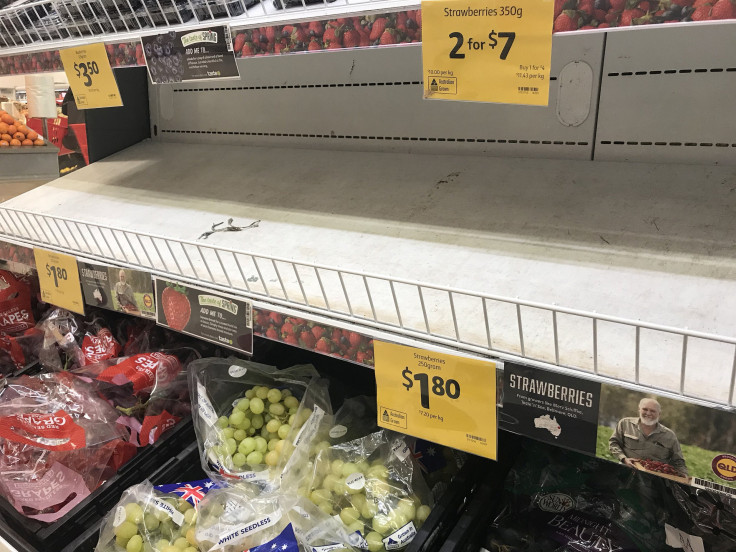Fruits With Needles Stuck In Them Are Appearing Around Australia

Police are investigating the discovery of needles in an apple early late Monday, days after warnings were issued for strawberry contamination in parts of Australia.
A Sydney woman claimed she found a needle in a Pink Lady apple after she purchased the fruit in a six pack from the Woolworths store at The Ponds in the city's north west. The woman from Sydney's suburb of Kellyville Ridge was peeling the apple when she came across something hard that she thought was the stem.
"I just thought, wow, this can't possibly be happening," the mother told the Seven News Network. "Not in apples. I'd seen the news about the strawberries and I'd been vigilant about cutting those up for the girls but to see this in an apple..."
The New South Wales Department of Health and local police have advised Woolworths not to remove the apples from their shelves for now, local media reported.
As the fruit crisis widens, police also ramped up its warning to copycats who were putting needles in fruits. An incident was reported Monday when a woman was caught inserting a needle into a banana in a Queensland supermarket. However, police confirmed the woman had mental health issues and said they were treating the act as an isolated incident.
The health scare in Australia has caused supermarkets to recall brands and farmers to dump fruits. Seven brands of strawberries were now believed to be contaminated with needles and pins, police said. Warnings were issued to consumers, asking them to slice fruits before consumption.
"A member of the public today presented at York Police Station to report his concerns that a needle had been in a punnet of strawberries," the Western Australian police said in a statement Monday. "The member of the public advised he located the needle in his sink after preparing strawberries for his family. He did not recall the needle being in the sink prior to preparing the strawberries."
As the concern increases, Queensland state government offered a $100,000 reward for any information leading to the source of the contamination.
© Copyright IBTimes 2025. All rights reserved.





















